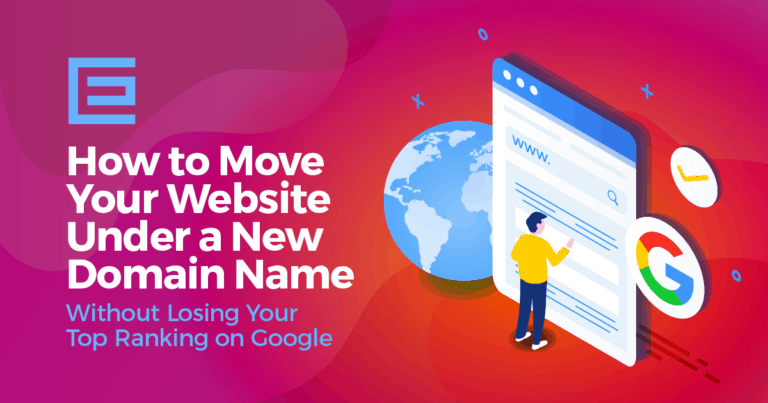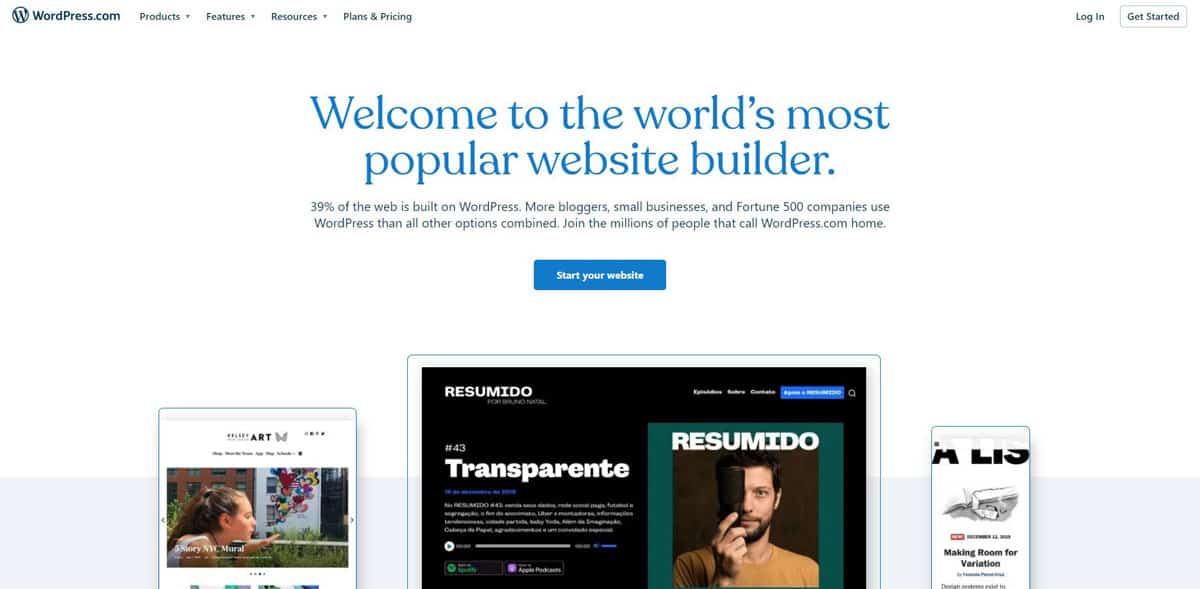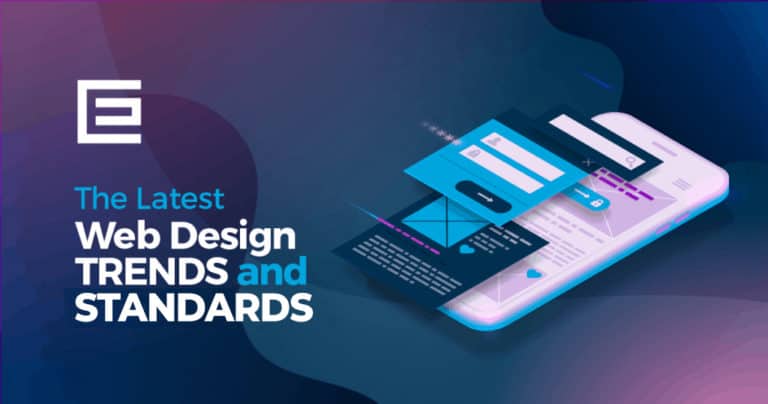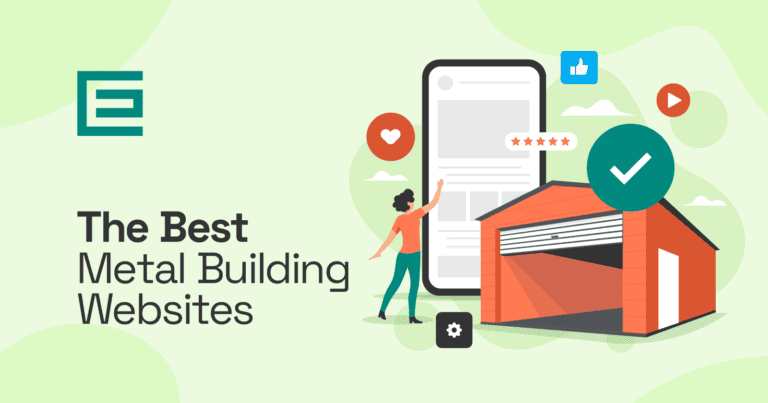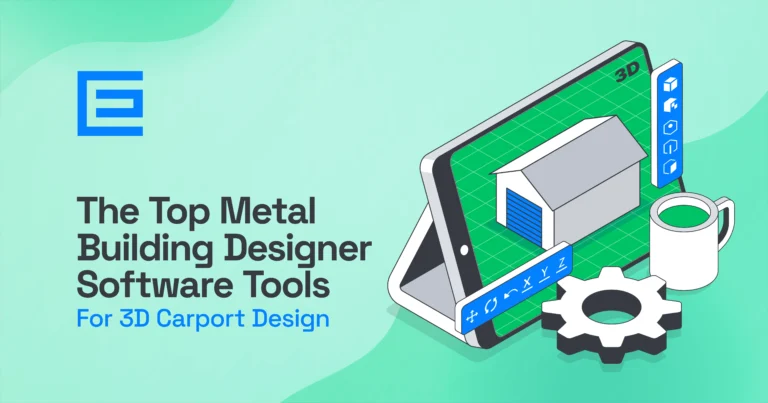Choosing a website builder also known as a website platform is akin to selecting the foundation when building your home. Everything that follows, the look, functionality, user experience, maintenance, adding on, and more will all be determined by this choice. The most important question when choosing the correct platform to build your website is what you plan to accomplish with your website. Some platforms are better suited for e-commerce, others for security. All the following website platforms have their unique strengths and weaknesses, the idea is to choose a platform that not only works for you today but can grow at the ]same speed as your business.
It’s generally recommended to select a website builder with a CMS- content management system as that can allow you more convenience in the control of your site. A CMS allows you to house your images, videos, PDFs, and more. This generally makes it much easier to edit and expand your website. It is also easier to organize and control 1 database with all necessary information.
Let’s Dive Deeper
Overview of Website Builders
A website builder is a tool or platform that allows individuals and businesses to create and manage a website without the need for extensive coding knowledge. These builders provide a user-friendly interface, typically featuring a drag-and-drop system, where users can select, customize, and arrange elements to design their website. The primary purpose of a website builder is to simplify the web development process, making it accessible to a wider audience regardless of their technical skills. They are designed to handle everything from website structure and layout to content management and hosting, offering an all-in-one solution for creating a professional online presence.
Key Features to Consider in a Website Builder
When selecting a website builder, there are several key features to consider to ensure that the platform meets your specific needs:
- AI Design Help: Look for builders that have AI for content generation, layout suggestions and automated design optimisation. This should include the ability to create and edit designs with natural language commands.
- Performance and Core Web Vitals: The builder should prioritise performance metrics like load time, interactivity and visual stability. It should auto optimise images, implement lazy loading and have built in performance monitoring tools.
- Advanced Accessibility Features: Look for built in WCAG compliance tools, automated accessibility checking and options to create designs for all users including those with disabilities.
- No-Code/Low-Code: The platform should have visual drag and drop interfaces and the ability to add custom code when needed for all technical levels.
- Enhanced Security: Modern security features should include auto SSL, DDoS protection, bot detection and built-in compliance with global privacy regulations like GDPR and CCPA.
- Advanced Mobile: Beyond basic responsiveness look for mobile first design tools, AMP support and PWA capabilities for app like mobile experiences.
- Headless CMS: The builder should have headless architecture options for businesses that want to separate content management from the frontend presentation layer.
- Sustainability Tools: Look for builders that have carbon footprint monitoring and optimisation features to create more eco friendly websites.
- Interactive Elements: Built in support for modern interactive elements like 3D, animations and immersive experiences with performance optimisation.
- Advanced E-commerce: Advanced e-commerce features should include omnichannel selling, AI powered product recommendations, AR product previews and multiple payment options including cryptocurrency.
Top Website Builders of 2025
1. WordPress
Key Features
- Full Site Editing (FSE) – The new Gutenberg editor has become a full site builder, true drag and drop no code
- AI – WordPress now has AI powered content generation, image optimization and layout suggestions through plugins like Jetpack AI and Elementor AI
- Headless WordPress – Headless architecture is growing and WordPress can be used as a backend for modern frontend frameworks like Next.js and React
- Block Patterns and Global Styles – Design systems that span entire sites
- Performance Optimization – Core Web Vitals and page speed built in
Essential Modern Plugins
- GenerateBlocks Pro – Create custom layouts with no code
- WP Rocket – Caching and performance
- Rank Math – AI SEO
- Bricks Builder – Visual building with dynamic data
- WordFence – Enterprise level security with machine learning
- FacetWP – Filtering and search
- Advanced Custom Fields Pro – Complex content structures
Modern E-commerce
- WooCommerce with headless commerce
- Multi-vendor marketplace
- Subscription based business models
- Digital product delivery
- Integration with modern payment systems including cryptocurrency
Why WordPress is still relevant
- Open source foundation with community innovation
- Enterprise level scalability with modern hosting
- Extensive API for custom integrations
- Accessibility and inclusive design
- Growing AI powered tools
- Native support for modern development practices
Features: Advanced block editor, AI, headless, customization through modern page builders.
Ease: Much better with FSE, but advanced features still require technical skills.
Pricing: Free core, modern hosting $20-$500/month.
Development: Active in AI, performance, modern JavaScript.
2. Shopify
Why Choose Shopify as Your Website Builder
1. AI Solutions: Automated content, product recommendations and AI powered customer support to simplify your business and customer experience.
2. E-commerce tools: Built for online retail with inventory management, multi channel selling and predictive analytics.
3. Omnichannel: Unify online and offline retail with POS systems, real-time inventory sync and consistent customer experience across all touchpoints.
4. Social Commerce: Built in integrations with TikTok Shop, Instagram Shopping and other social platforms to sell and engage on social.
5. Full Analytics: Advanced data analytics to get customer insights, purchase patterns and predictive inventory management to make informed decisions.
6. Security & Compliance: Enterprise level security with fraud analysis tools, data protection and automated compliance updates for global commerce.
7. Future Proof: Headless commerce through Hydrogen and Oxygen, custom frontend experiences while keeping the backend robust.
8. Sustainable Commerce: Carbon neutral shipping, sustainability tracking and features to help merchants reduce their footprint.
9. Flexible Payments: Modern payment methods including Buy Now Pay Later, cryptocurrency and localized payment options along with traditional methods.
10. Enterprise Ready: Scalable infrastructure to support from startup to enterprise, automated scaling and performance optimization.
Features: AI powered e-commerce platform with headless commerce and omnichannel solutions for modern retail.
Ease of Use: Sophisticated features with simple design, AI assistants for setup and management.
Pricing: Premium pricing for advanced features and enterprise grade, scalable plans for different business sizes.
Customer Reviews: Highly rated for innovative features, AI integration, and ability to scale across multiple sales channels.
3. Wix
Why Use Wix as Your Website Builder
- AI Website Builder: Smart site generation using Wix ADI technology, with contextual design and content recommendations tailored to your industry.
- Web Apps: Create PWAs and dynamic websites with Wix Velo, custom functionality and database driven content without coding.
- Design System: Advanced design system with custom animations, scroll effects and responsive layouts using modern CSS Grid and Flexbox.
- Performance: Edge-cached content delivery with smart resource loading and predictive preloading for optimal speed.
- E-commerce Suite: Multi-channel selling, dropshipping integration and inventory forecasting with real-time market insights.
- Business Intelligence: Comprehensive performance metrics with predictive modeling and automated insight generation.
- Marketing Hub: Integrated campaign orchestration with behavioral targeting, automated journey mapping, and conversion optimization.
- Enterprise Security: Multi-layer threat protection, continuous security monitoring, and comprehensive data privacy framework.
- Headless: Create custom frontend experiences with Wix Velo and extensive API ecosystem.
- Sustainability: Environmental impact dashboard with actionable insights for reducing digital carbon footprint.
Features: Smart development ecosystem, enterprise-grade design tools, and integrated business solutions.
Ease of Use: Visual editing with developer extensibility, AI assistance for beginners and professional tools for experts.
Plans: Flexible pricing structure with specialized features for different business scales.
Reviews: 5 stars for intelligent design tools, 4 stars for platform performance.
4. Squarespace
Why Choose Squarespace for Your Website
- AI Design: Intelligent design system that generates purpose-built layouts while preserving Squarespace’s signature aesthetic standards.
- Dynamic Content Systems: Context-aware content management with smart scheduling and personalized user experiences.
- E-commerce Suite: Unified commerce platform with predictive inventory management and social selling automation.
- Performance Architecture: Next-generation speed optimization with intelligent resource loading and automated performance tuning.
- Business Hub: Unified business command center with AI-powered growth metrics and automated marketing optimization.
- Enterprise Security: Advanced threat detection, military-grade encryption, and global privacy compliance integration.
- Sustainability: Green hosting infrastructure with real-time environmental impact monitoring and optimization.
- Portfolio Tools: Creative asset management with AI-enhanced media optimization and immersive gallery experiences.
- Member Areas 2.0: Advanced community platform with smart engagement tools and premium content delivery.
- Cross-Platform: Seamless integration ecosystem with automated workflow orchestration.
Features: Design-focused platform with intelligent tools and integrated business solutions.
Ease of Use: Streamlined interface with AI assistance for complex features.
Pricing: Value-based pricing with scalable professional and enterprise options.
Customer Reviews: 5 stars for design excellence, particularly noting recent AI enhancements.
5. BigCommerce
Why Opt for BigCommerce as Your E-commerce Platform
- AI-Commerce: Dynamic pricing and demand-based inventory management.
- Headless Commerce: API-first for custom frontend development with enterprise scalability.
- Global Commerce: Automated localization and market-specific optimizations.
- B2B: Smart workflow automation and account management.
- Composable: Custom tech integration with enterprise standards.
- Analytics: Customer behavior modeling and performance forecasting.
- Omnichannel: Inventory balancing and unified commerce controls.
- Enterprise Security: Fraud detection with threat mitigation and compliance automation.
- Sustainability: Environmental impact management with resource optimization.
- Performance: Delivery network with resource optimization and performance scaling.
Features: Intelligent commerce platform with B2B.
Ease of Use: Advanced features with management tools and automation.
Pricing: Enterprise pricing with custom solutions for big volume merchants.Customer Reviews: Top ratings for B2B and intelligent commerce.Customer Reviews: Top ratings for B2B and intelligent commerce.
Categories of Website Builders
Best for Small Businesses
Modern small businesses require website builders that integrate AI capabilities with robust business tools. Wix has emerged as a leader in this space, offering AI-driven website creation and management through Wix ADI, along with advanced analytics and marketing automation. Squarespace complements this category with its AI-enhanced design tools and sophisticated content management systems, making it ideal for brand-conscious small businesses. Both platforms now feature comprehensive business hubs that unify marketing, CRM, and analytics with AI-driven insights, while maintaining focus on sustainability through carbon footprint monitoring and eco-friendly hosting options.
Best for E-commerce
The e-commerce landscape has evolved significantly, with platforms now emphasizing AI integration and omnichannel capabilities. Shopify leads with its AI-powered features like Shopify Magic, advanced analytics, and headless commerce capabilities through Hydrogen and Oxygen. BigCommerce distinguishes itself with enterprise-grade composable commerce architecture and sophisticated B2B tools, including AI-driven inventory forecasting and dynamic pricing optimization. Both platforms have embraced sustainability features, offering carbon-neutral shipping options and environmental impact tracking, while providing advanced security measures and fraud prevention through AI.
Best for Personal Websites/Blogs
Personal website builders have transformed into dynamic content platforms with AI assistance. Squarespace now offers AI-enhanced content creation, dynamic layouts, and advanced portfolio tools with AI-powered image editing and virtual gallery capabilities. Wix provides progressive web applications (PWAs) and dynamic websites through Wix Velo, enabling database-driven content without traditional coding. Both platforms emphasize performance optimization with Core Web Vitals focus and advanced caching systems, while offering sophisticated membership platforms for community building and exclusive content delivery.
Best for Creatives and Designers
The creative sector has seen significant advancement in website building capabilities. Squarespace’s platform now features AI-enhanced design tools while maintaining its signature aesthetic excellence, complemented by advanced media management systems and virtual gallery capabilities. Wix offers sophisticated design systems with custom animations and responsive layouts using modern CSS Grid and Flexbox technologies. Both platforms have embraced headless architecture support, enabling advanced development possibilities while maintaining user-friendly interfaces. They also include advanced portfolio tools with AI-powered media management and cross-platform integration capabilities.
In summary, website builders have evolved beyond basic site creation to become comprehensive business and creative platforms. The integration of AI, emphasis on performance optimization, and focus on sustainability have become standard features across all categories. The distinction between platforms now lies in their specialized capabilities: small business automation, enterprise-grade e-commerce solutions, dynamic content management, or advanced creative tools. The choice of platform depends not just on immediate needs but on long-term scalability and technological advancement requirements.
Comparing Website Builders
Side-by-Side Comparison of Top Features
When comparing website builders, it’s crucial to evaluate their top features to understand what each platform offers. For instance, Wix provides a wide range of templates and an AI-powered design assistant, while Squarespace is known for its high-quality, professional templates. Shopify and BigCommerce excel in e-commerce functionalities, offering comprehensive tools for online stores. WordPress, on the other hand, stands out for its extensive customization capabilities through plugins and themes.
Pros and Cons of Each Builder
Wix:
- Pros: Advanced AI-powered design tools, robust app market, extensive no-code development options with Wix Velo, and strong mobile optimization.
- Cons: Site migration to other platforms is challenging, and advanced features can impact performance if not optimized properly.
Squarespace:
- Pros: Premium design-focused templates, integrated e-commerce tools, advanced portfolio features, and strong content management for creators.
- Cons: Higher pricing tier required for advanced commerce features, and customization requires learning Squarespace’s specific design system.
Shopify:
- Pros: Comprehensive omnichannel selling tools, headless commerce capabilities via Hydrogen framework, strong AI integration for automation, and marketplace integrations.
- Cons: Premium apps can significantly increase monthly costs, and advanced customization often requires hiring Shopify experts.
BigCommerce:
- Pros: Enterprise-grade B2B features, headless architecture support, built-in multi-currency tools, and no transaction fees on any plan.
- Cons: Enterprise-focused pricing can be prohibitive for small businesses, and the learning curve for utilizing advanced features is steep.
WordPress:
- Pros: Full site editing capabilities, extensive AI plugin options, headless CMS support, and complete control over hosting and infrastructure.
- Cons: Performance optimization requires technical expertise, and managing multiple plugins can lead to compatibility issues and security vulnerabilities.
User Experience and Interface Comparison
The user experience and interface of a website builder can significantly impact the ease with which a website is created and managed. Wix and Squarespace offer highly intuitive and visually appealing interfaces, making the website building process smoother for users, especially beginners. Shopify also provides a user-friendly experience but with a focus on e-commerce functionalities. WordPress, while offering the most flexibility and customization options, has a steeper learning curve and may require more technical expertise, especially for complex sites. BigCommerce offers a balance between advanced features and usability, though it might be overwhelming for absolute beginners.
In conclusion, each website builder has its unique strengths and weaknesses, and the choice largely depends on the specific needs, technical skills, and goals of the user. A side-by-side comparison of features, along with an understanding of the pros and cons and the user experience of each platform, can guide users in making an informed decision that best suits their website project.
Customization and Flexibility
Exploring Customization Options in Website Builders
Customization is a key factor when choosing a website builder, as it determines how much you can tailor your site to meet specific needs and brand identity. Different builders offer varying levels of customization:
- Wix provides a highly flexible drag-and-drop editor, allowing users to place elements anywhere on the page. It also offers a vast library of templates and the ability to add animations, video backgrounds, and custom fonts.
- Squarespace is known for its stylish templates, which can be customized with different color schemes, fonts, and page configurations. While it doesn’t offer a drag-and-drop interface like Wix, it provides extensive styling options through its design editor.
- WordPress stands out for its limitless customization capabilities, thanks to thousands of themes and plugins. It’s ideal for users who need a highly specific or unique site and are comfortable with more technical aspects of web design.
- E-commerce platforms like Shopify and BigCommerce offer customization tailored to online stores, including various storefront themes, product display options, and checkout customization.
The Importance of Responsive Design and Mobile Compatibility
In today’s digital landscape, responsive design and mobile compatibility are not just beneficial but essential. A significant portion of web traffic comes from mobile devices, making it crucial for websites to look and function well on smartphones and tablets.
- Most modern website builders automatically include responsive design in their templates, ensuring that websites adapt to different screen sizes and resolutions.
- Squarespace and Wix offer templates that are inherently responsive, meaning they automatically adjust to fit the screen of any device.
- WordPress users need to ensure they choose responsive themes, as not all are mobile-friendly by default.
- For e-commerce sites, platforms like Shopify and BigCommerce provide mobile-optimized shopping experiences, which is vital for attracting and retaining customers who shop on their phones.
Responsive design not only improves user experience but also contributes to SEO. Search engines like Google prioritize mobile-friendly websites in their rankings, recognizing the growing trend of mobile web browsing.
In summary, customization and flexibility vary across different website builders, and the choice depends on the user’s specific needs and technical comfort level. Responsive design and mobile compatibility are critical elements to consider, as they significantly impact user experience and search engine rankings. By choosing a builder that aligns with these needs, users can create a website that is both aesthetically pleasing and functionally robust across all devices.
SEO and Marketing Tools
SEO Features in Website Builders
Search Engine Optimization (SEO) is crucial for increasing visibility and driving traffic to your website. Most modern website builders come equipped with a range of SEO tools to help optimize your site:
- Wix offers an SEO Wiz tool, guiding users through the process of optimizing their site, including setting up keywords and meta descriptions. It also allows for custom URLs and alt text for images.
- Squarespace provides built-in SEO tools for basic needs like page titles, descriptions, and custom URLs. It also automatically generates sitemaps and uses clean HTML markup for better indexing.
- WordPress, with its SEO plugins like Yoast SEO, offers comprehensive SEO capabilities, from detailed on-page optimization to readability checks and sitemap generation.
- E-commerce platforms like Shopify and BigCommerce include SEO features tailored for online stores, such as product title and description optimization, and structured data support for product listings.
Marketing Tools and Integrations
Effective marketing is key to attracting and retaining customers, and website builders offer various tools and integrations for this purpose:
- Wix and Squarespace both offer email marketing solutions, social media integration, and tools for creating promotional pop-ups and banners.
- WordPress excels with its vast array of plugins for every marketing need, from email marketing to social media integration and lead generation tools.
- Shopify stands out in e-commerce marketing, offering tools for email campaigns, discount codes, and integration with platforms like Facebook and Instagram for selling products.
- BigCommerce also provides robust marketing tools, including segmentation, abandoned cart recovery, and Google Shopping integration.
- Additionally, many builders offer integration with third-party tools like Google Analytics for tracking website performance and user behavior, essential for informed marketing decisions.
In conclusion, the choice of a website builder should consider not only its design and customization features but also its SEO and marketing capabilities. These tools are essential for ensuring that your website not only looks great but also reaches your target audience effectively. Whether it’s through built-in features or third-party integrations, the right combination of SEO and marketing tools can significantly enhance the online presence and success of your website.
Pricing and Value for Money
Understanding Pricing Structures
Website builders offer a range of pricing structures to cater to different needs and budgets. Generally, these can be broken down into several tiers:
- Free Plans: Most website builders offer a basic free plan. These are often limited in features, come with the builder’s branding, and have restrictions on domain names.
- Monthly Subscriptions: Paid plans are typically offered on a monthly subscription basis. These plans vary in price and features, with higher tiers offering more advanced capabilities like e-commerce tools, increased storage, and marketing features.
- Annual Subscriptions: Many builders offer discounts for annual subscriptions. Opting for an annual plan can be more cost-effective in the long run compared to monthly billing.
Free vs Paid Options
The choice between free and paid plans depends on your website’s purpose and requirements:
- Free Plans are suitable for personal projects, portfolios, or testing the platform. However, they often lack professional features like a custom domain, ad-free experience, and comprehensive SEO tools.
- Paid Plans are essential for a professional or business website. They provide more storage, bandwidth, and access to a broader range of templates and customization options. Paid plans also typically offer better support and e-commerce capabilities.
Value for Money Analysis
When assessing the value for money, consider the following:
Wix ranges from $16-45/month (Business & eCommerce plans), offering a comprehensive feature set including abandoned cart recovery, custom reports, and subscription sales at higher tiers. Their most popular Business Unlimited plan at $27/month provides excellent value for small-to-medium businesses.
Squarespace’s business plans range from $23-49/month, with their Business plan at $33/month being particularly competitive for its combination of marketing tools, professional email from Google, and advanced analytics.
WordPress.com’s Business plan at $25/month includes plugin access and advanced SEO tools, while their eCommerce plan at $45/month adds shipping carrier integration and acceptance of payments from 60+ countries.
Shopify has adjusted their pricing to $39-399/month, with their mid-tier $105/month Shopify plan offering the best balance of features including professional reports and lower transaction fees.
When evaluating value for money, focus on:
Feature Integration: Modern platforms now bundle previously premium features like SSL certificates, basic SEO tools, and mobile optimization in base plans. Look for platforms offering advanced marketing tools, AI-powered features, and comprehensive analytics in their pricing.
Support Structure: Premium plans increasingly include priority support, dedicated success managers, and extended technical assistance. This can be crucial for business continuity.
Growth Potential: Consider platforms offering headless commerce options, API access, and development tools if you anticipate needing enterprise-level capabilities in the future.
Resource Allocation: Many builders now include enhanced storage and bandwidth limits, with some offering unlimited resources at higher tiers. Consider your growth trajectory when selecting plans.
For small businesses and entrepreneurs, Wix and Squarespace continue to offer strong value through their mid-tier plans. WordPress remains the most cost-effective for content-heavy sites requiring extensive customization. For ecommerce, while Shopify’s pricing has increased, their ecosystem and reliability often justify the investment for serious online retailers.
The best value comes from matching your specific needs with a plan that provides room for growth without overcommitting to unnecessary features. Consider starting with a mid-tier plan that offers essential business tools, then upgrading as your needs evolve.
User Support and Resources
Types of Customer Support Offered
Effective customer support is a crucial aspect of any website builder, as it ensures users can get help whenever they encounter issues or have questions. The types of support offered can vary significantly among different platforms:
- Live Chat: Many website builders, including Wix and Shopify, offer live chat support. This allows for real-time assistance, which is particularly useful for quick queries or immediate technical issues.
- Email Support: Email support is a common feature across most platforms, including Squarespace and WordPress. It’s suitable for less urgent issues where detailed explanations or attachments may be required.
- Phone Support: Some builders like GoDaddy provide phone support, offering a more personal touch and often quicker resolutions for complex issues.
- Social Media Support: Increasingly, platforms are also offering support through social media channels, recognizing the need for diverse communication channels.
Availability of Resources
In addition to direct customer support, the availability of self-help resources is vital for users to learn and solve problems independently:
- Tutorials and Guides: Comprehensive tutorials and guides are invaluable, especially for beginners. WordPress and Shopify offer extensive libraries of articles and step-by-step guides covering a wide range of topics.
- Video Tutorials: Platforms like WordPress and Shopify provide video tutorials, which are particularly helpful for visual learners and for explaining more complex functionalities.
- Forums and Community Support: Community forums, available on platforms like WordPress, allow users to seek help from fellow users, share experiences, and find solutions to common issues. These forums can be a treasure trove of information and tips.
- Webinars and Online Courses: Some website builders offer webinars and online courses. For instance, Shopify has its own academy providing courses on e-commerce and website management.
- Blogs and Articles: Regularly updated blogs, as seen on BigCommerce and Wix, provide insights into new features, trends, and best practices in website design and online marketing.
The level and type of user support and resources can significantly impact the overall experience with a website builder. Users should consider not only the direct support channels available but also the range and quality of self-help resources. This combination of support ensures that users can effectively build, manage, and troubleshoot their websites, regardless of their technical expertise.
FAQs
What is the Easiest Website Builder for Beginners?
For beginners, ease of use is a key factor when choosing a website builder. Wix is often recommended as the easiest builder for novices due to its intuitive drag-and-drop interface and wide selection of pre-designed templates. It simplifies the design process, allowing users to create a professional-looking website without any coding knowledge. Another beginner-friendly option is WordPress, which offers a straightforward, user-friendly platform with various customizable templates.
Which Website Builder is Best for SEO?
When it comes to SEO, WordPress stands out due to its extensive customization options and the availability of powerful SEO plugins like Yoast SEO. These tools offer comprehensive guidance and control over SEO elements, from meta tags to sitemaps. However, for those seeking a more integrated approach, Squarespace and Wix also offer robust built-in SEO tools that are easier to navigate for beginners, ensuring that basic SEO needs are seamlessly met.
Can I Switch My Website Builder Later?
Switching website builders can be a complex process, depending on the platforms involved. While it’s possible, it often involves manually transferring content and redesigning your site on the new platform. Some website builders offer tools to import content from specific other builders, but this usually doesn’t include a complete transfer of design and functionality. It’s advisable to carefully choose your website builder considering long-term needs to avoid the need for switching later.
Are Free Website Builders Worth It?
Free website builders can be worth it for specific purposes, such as personal projects, portfolios, or testing an idea. However, they come with limitations like the presence of the builder’s branding, limited customization options, and a lack of certain features such as custom domains and e-commerce functionality. For a professional or business website, investing in a paid plan is generally recommended to access more features, greater customization, and a more professional appearance.
Final Thoughts and Recommendations
Choosing the right website builder is a decision that should align with your specific needs, skill level, and long-term goals. For beginners, platforms like Wix offer ease of use and simplicity. WordPress, with its extensive customization options, is ideal for those requiring more control and scalability, especially for SEO. E-commerce-focused businesses might find Shopify or BigCommerce more aligned with their needs.
When selecting a website builder, consider not only the immediate requirements of your website but also potential future needs. A platform that offers scalability, robust customer support, and a suite of SEO and marketing tools can be a more sustainable choice in the long run.
The landscape of website builders is diverse and ever-evolving. By carefully considering the key points discussed, you can choose a platform that not only meets your current needs but also supports the growth and evolution of your online presence in the years to come.
Contact us for Help Choosing the Right Website Builder
If you’re wondering what website platform is best for your business, contact the website development experts at TheeDigital or schedule a consultation here.
Tags: Web Design • WordPress

